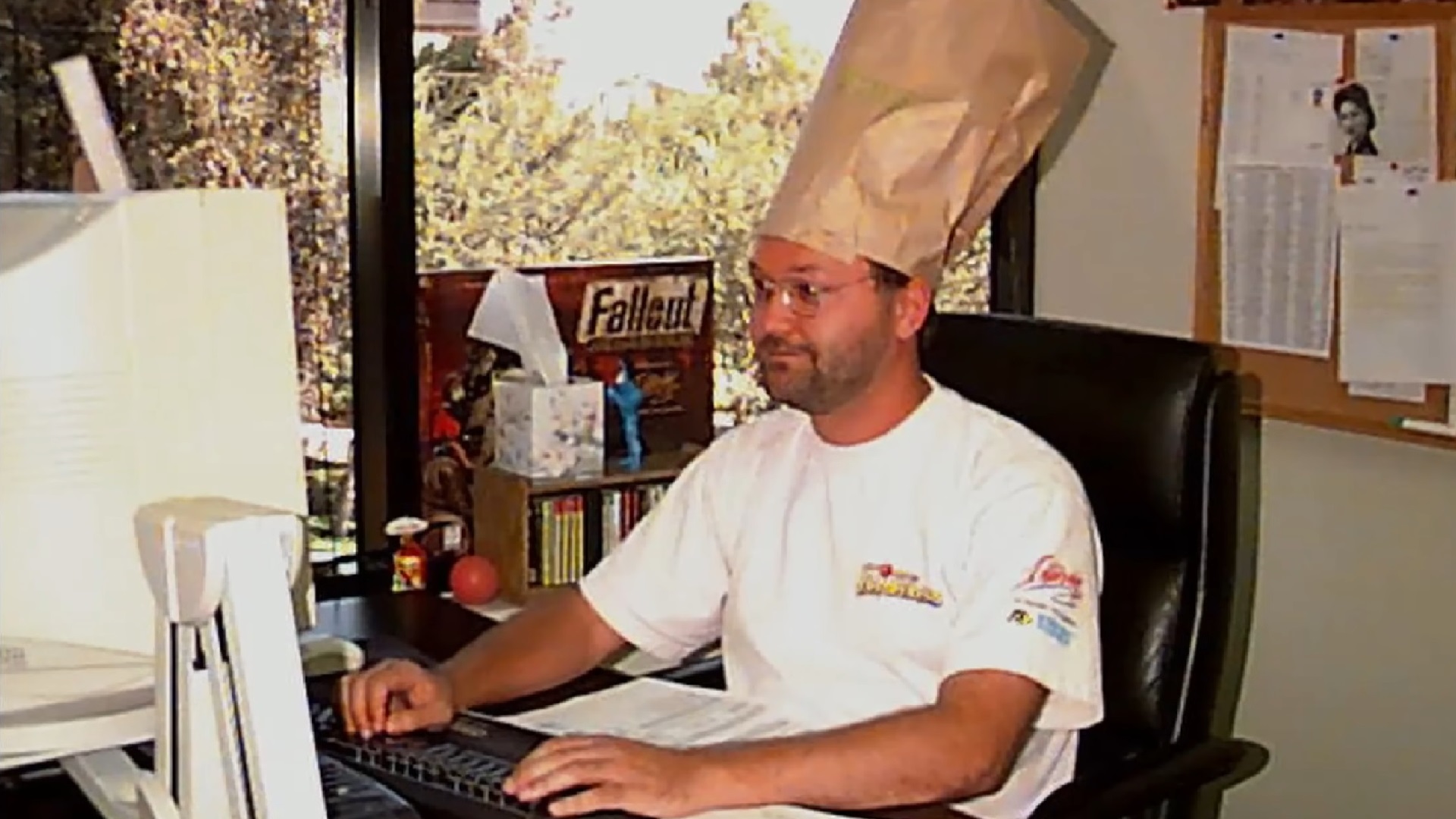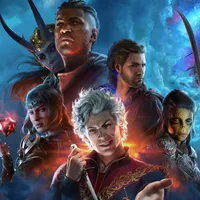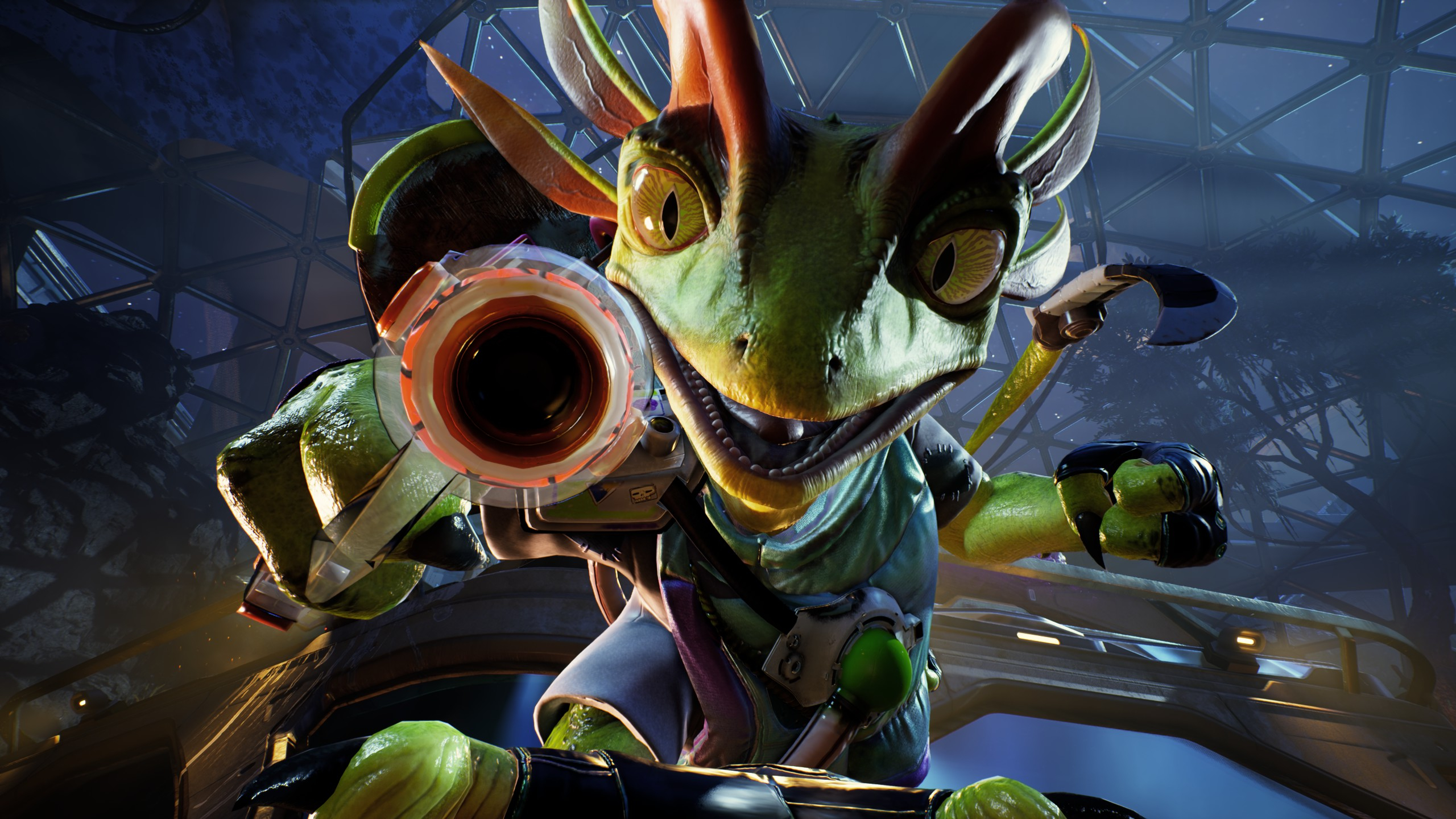'They told me to destroy' my backups, Fallout creator Tim Cain says: 'People high up at companies take authority but no responsibility' for game preservation
Cain said he wasn't allowed to save the original Fallout's source code for his own archive, and some of its assets may be lost for good.

Keep up to date with the most important stories and the best deals, as picked by the PC Gamer team.
You are now subscribed
Your newsletter sign-up was successful
Want to add more newsletters?

Every Friday
GamesRadar+
Your weekly update on everything you could ever want to know about the games you already love, games we know you're going to love in the near future, and tales from the communities that surround them.

Every Thursday
GTA 6 O'clock
Our special GTA 6 newsletter, with breaking news, insider info, and rumor analysis from the award-winning GTA 6 O'clock experts.

Every Friday
Knowledge
From the creators of Edge: A weekly videogame industry newsletter with analysis from expert writers, guidance from professionals, and insight into what's on the horizon.

Every Thursday
The Setup
Hardware nerds unite, sign up to our free tech newsletter for a weekly digest of the hottest new tech, the latest gadgets on the test bench, and much more.

Every Wednesday
Switch 2 Spotlight
Sign up to our new Switch 2 newsletter, where we bring you the latest talking points on Nintendo's new console each week, bring you up to date on the news, and recommend what games to play.

Every Saturday
The Watchlist
Subscribe for a weekly digest of the movie and TV news that matters, direct to your inbox. From first-look trailers, interviews, reviews and explainers, we've got you covered.

Once a month
SFX
Get sneak previews, exclusive competitions and details of special events each month!
You may remember the clay heads used in dialog from the original Fallout CRPGs. They've not aged gracefully, what with their stiff animations and pudding-like faces, but you can't tell the full story of how RPG visuals evolved in the late '90s without them. They (and all the sprites in the original Fallout) represent a milestone for the CRPG—and as far as Fallout co-creator Tim Cain knows, their source art assets might just be gone for good.
"Even though it shipped with sprites, it was a sprite-based engine, they were all made in 3D. They were made in Maya or Alias," Cain said in a video on his YouTube channel. "Those source art files were huge … they were backed up to DAT tape, but I don't know what happened to that DAT tape and it doesn't last that long. They last five or ten years before they start having errors. So, I think that source art is all gone."
In the video, Cain goes into his history with game asset preservation as a habitual pack rat just as eager to save his production meeting notes as his old gaming consoles. While he was ordered to destroy his copy of the Fallout source code, which then only was saved because of one programmer's efforts, he's had more luck as he's worked on games his team owned. For everything else, including historic games like Fallout, it's been a mixed bag; that's something he lays at the feet of corporate owners.
"I've lost stuff, and I think I take an active effort to keep a lot of things, so I can see why companies have lost stuff. However, they had the responsibility to do it. That I think is the difference," he explained in the video.
If you're wondering why he didn't just go rogue and save everything anyway, Cain noted ownership disputes are not to be taken lightly: "They told me to destroy it. I did … When you're being threatened with a lawsuit, you delete it all."
More than that, it's rarely as easy as quickly sneaking duplicates onto a personal drive; this was especially true in the 1990s, when art assets and code were usually saved to fragile, impermanent means of storage like discs and tapes. It's even more complicated when you consider physical assets, like the clay heads that were converted into 3D models to be used as sprites for Fallout, and complex design documents.
"The early stuff was lost. Either it was physical and I moved and moved and moved … but the later stuff was digital, so it was large and hard to back up. A lot of the design documents in the later part of my career were done on Confluence, and making a local copy of that? Yeah, you could dump it out, but all the links break, maybe the art doesn't go in, people have embedded videos. It's large and difficult to back up, so it's not [backed up]."
Keep up to date with the most important stories and the best deals, as picked by the PC Gamer team.
Notably, Cain said he never felt the pressure to save his work at Obsidian Entertainment, as there's a robust practice of archiving assets and code after a game ships. To me, that highlights the main issue here; it takes a village to meaningfully archive all the thousands of building blocks that make up a videogame, but the desire to do it usually lies with programmers, artists, and fans who don't have the necessary rights or the access.
For fans of games like Fallout, it's galling to know that such iconic art assets may be well and truly lost. For games without such huge followings or especially careless IP holders, there's an even bigger threat of ephemerality.
"A few months ago, I did a video on game preservation," Cain said in his video. "A lot of companies have lost things. I kind of sounded mad about it, and in a way I am. If you take the authority to keep these things and tell other people not to, and that they have no right to, then you also have to take the responsibility to keep them. It just kind of makes me mad when repeatedly companies, and especially people high up at companies, take authority but no responsibility."
2025 games: This year's upcoming releases
Best PC games: Our all-time favorites
Free PC games: Freebie fest
Best FPS games: Finest gunplay
Best RPGs: Grand adventures
Best co-op games: Better together
Justin first became enamored with PC gaming when World of Warcraft and Neverwinter Nights 2 rewired his brain as a wide-eyed kid. As time has passed, he's amassed a hefty backlog of retro shooters, CRPGs, and janky '90s esoterica. Whether he's extolling the virtues of Shenmue or troubleshooting some fiddly old MMO, it's hard to get his mind off games with more ambition than scruples. When he's not at his keyboard, he's probably birdwatching or daydreaming about a glorious comeback for real-time with pause combat. Any day now...
You must confirm your public display name before commenting
Please logout and then login again, you will then be prompted to enter your display name.




